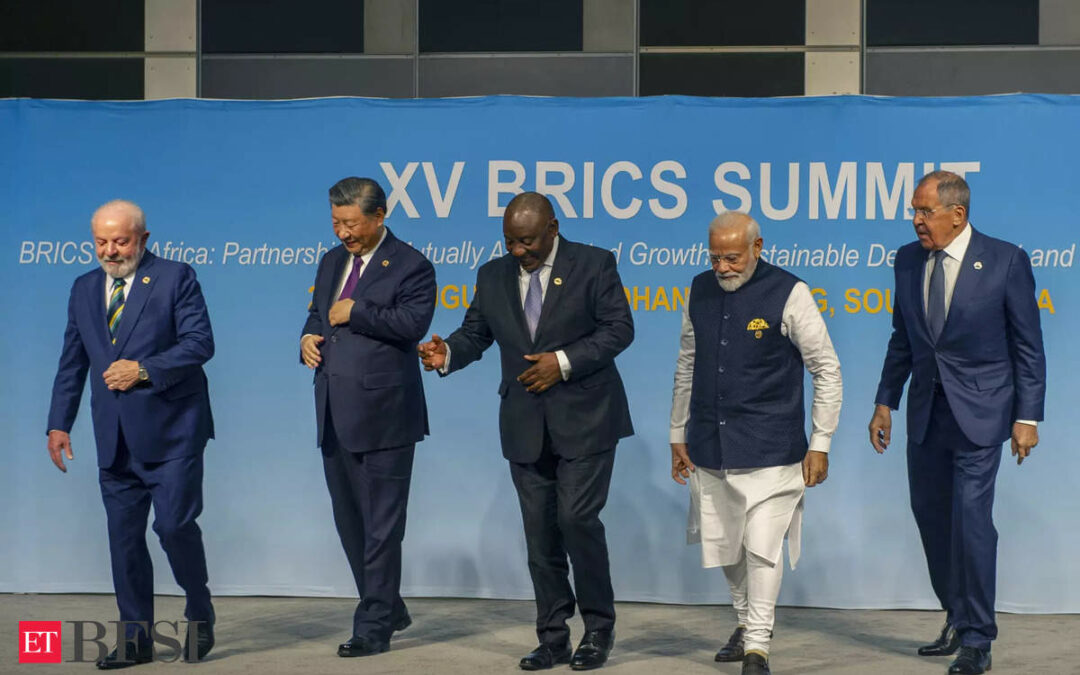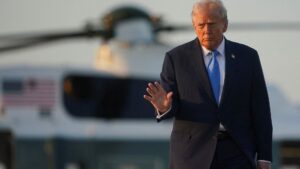The recent G20 summit held under the chairmanship of India in New Delhi amply demonstrated India’s growing stature in the world arena in terms of its role and influence in various global fora. The G20 was a meticulously planned year-long event culminating into the Summit in September 2023. The theme of the G20 Presidency was declared as “One Earth, One Family, One Future” signifying LiFE (Lifestyle for Environment) and highlighting the importance of environmentally sustainable and responsible actions for a green and sustainable development. India was instrumental in securing the consensus on the resolution and granting permanent member status to the 55 – member African Union which shows the crucial role played by India in voicing the interests of the Global South.
CATCH BUDGET COVERAGE HERE
Perhaps, it is now time to build on the success of G20 summit and bring the Global South countries on board to proactively take forward the decisions and aspirations of the summit. Considering India has time and again raised its voice on behalf of the Global South in various international meetings and in providing humanitarian assistance during calamities and the COVID-19 pandemic, India is appropriately positioned to contribute towards the collective development of the Global South. To sustain the influence and voice of India it is essential that quick on the heels of G20 summit some follow up measures can be announced through the instrument of the Union Budget 2024-25. It may be recalled, India is one of the first developing countries to offer “duty-free quota-free” access to least developed countries (LDCs) to its markets through unilateral tariff concessions. Initiatives such as these may be supported by enabling the LDCs manufacture products that we need. Implementing
trade facilitation measures with appropriate capacity building initiatives for developing countries such as towards adoption of greater digitisation and paperless trade can be a good starting step.
Many in the Global South have limited resources and are largely dependent on foreign aid from multilateral and bilateral sources for their infrastructural development. China has been aggressively lending in Africa for infrastructure projects. India too has been supporting several infrastructure projects in Africa and elsewhere by extending Line of Credits (LoC) to these countries. Despite this financing, there is still a huge gap in the infrastructure needs of these countries. India can play a bigger role by enhancing and broadening the funding by including more projects in multiples countries directly.
Underdeveloped banking systems act as a deterrence for companies in boosting trade and investment in these countries. Though Indian banks have been expanding their footprint in several of these countries and mobile banking is also spreading, there is still a need to develop the local banking. Announcement can be made in the budget regarding India’s assistance for developing the banking sector and share learning and expertise on India’s digital public infrastructure known as India Stack for greater financial inclusion.
Renewables
Global South has ample potential for developing renewable energy sources like solar energy, wind energy and hydroelectric power but with their limited capacity, weak institutional structures and outdared infrastructure these countries are unable to harness this energy and end up experiencing worst effects of climate change. India is uniquely placed to bring about cooperation on climate change among the developed and developing countries by serving as a bridge between these two groups. It can leverage the G20 and other global funding mechanisms to increase climate finance. Budget announcements in this space would be welcomed and can bring about green transitions while reducing disaster risks in the most vulnerable parts of the world.
Disaster Management
Further, a Disaster Risk Reduction Fund can be announced in the budget targeted at the LDCs of Global South. An institutionalised mechanism with a pool of experts of disaster management of different countries needs to be created to deal with this issue. Some of these countries are prone to natural disasters and calamities which bring untold misery to people. If a special Disaster Management Fund is announced, it will send a very strong message across the developing world about India’s solidarity with them.
During the Voice of Global South Summit hosted by India in 2023 it was decided to encourage collaborative solutions, innovations, sharing of best practices for quality teaching as well as collaboration among educational institutions and student exchange programmes. India has successfully established a wide network of educational and technical institutions many of which have excellent global level facilities and infrastructure. Some of these institutions should be facilitated to set up their campuses in other developing, including our neighbouring, countries. A policy announcement can be made in the budget about the opening of campuses of some of these Institutes in LDCs. Such initiatives may be funded fully or partially by the Central Government. A special focus should be on technical and medical education.
With its unique position, recognising the diversity within Global South countries in terms of income levels and capabilities, with adequate budgetary support, India can leverage its position by playing on its strengths and performing a leadership role in the Global South.
(Agneshwar Sen is Associated Partner – Trade and Indirect-tax Policy Advisory, EY India & Esha Sandhu, senior tax professional)
BUDGET FAQs
1. What is the Global South?
The Global South, as defined by UNCTAD, is essentially made up of Africa, Latin America and the Caribbean, Asia (with the exception of South Korea, Japan, and Israel), and Oceania (with the exception of Australia and New Zealand).
2. What is G20?
The European Union (EU), the African Union (AU), and nineteen sovereign nations make up the Group of Twenty, or G20, an intergovernmental conference.
3. Who will host the next G20?
Brazil will host the Group of 20 (G20) Summit in 2024 from July 12–14.










